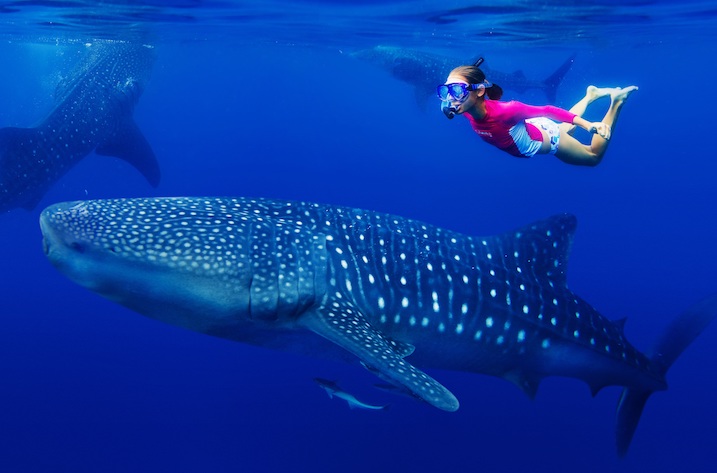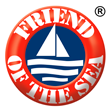Whale Shark Watching
Whale shark watching
The Whale shark is the biggest fish in the world! It is not a whale but actually a shark, belonging to the group of cartilaginous fishes. It is call a ‘whale shark’ simply because of its enormous size.
Interactions with these gentle giants have increased significantly, and anyone can swim with them simply by snorkelling or scuba diving.

Are whale sharks friendly?
Yes – whale sharks are friendly creatures! Although they can reach up to 20 meters in length, this shark is totally harmless to humans.
Unfortunately, these contacts with humans may be bad for whale sharks, and for this reason we have created rules of conduct that aim to protect these beautiful animals.
Is it bad to swim with whale sharks?
Whale sharks are globally endangered and are listed as vulnerable creatures on the Red List of Threatened species because of the threats that they face from commercial fishing.
The growth of initiatives that promote swimming and diving with whale sharks is controversial. The impact of feeding and human interaction with these animals threatens their natural behavioural patterns however the growth of the whale shark tourism has led to them being seen for what they are – an animal that should be protected and respected in its natural environment.
Sustainable whale shark tourism is important for their conservation and to preserve these beautiful creatures.
Why can’t you touch a whale shark?
Swimming alongside a whale shark is fine however touching them will damage the protective mucus layer that protects the animal against bacteria and parasites, can disrupt their natural behaviour and cause them stress.
Where is the best place to see whale sharks?
Whale sharks are filter feeders and eat vast quantities of krill, zooplankton, fish eggs and small fishes. The best place to see whale sharks in the world is where these food sources are abundant.
A few of the top destinations for whale shark tourism include the Wolf and Darwin Islands in the Galapagos, Bahia de los Angeles, Socorro Island and Isla Mujeres in Mexico, Oslob in the Philippines and the Ningaloo Reef in Western Australia to name but a few.
The Standard for Sustainable Whale Shark Watching
Friend of the Sea’s Sustainable Whale Shark Watching Standard seeks to minimise unintentional disturbance through key principles of conduct.
This standard, developed in collaboration with Deni Ramirez from Whale Shark Mexico, is applicable to all tour operators who respect responsible tourism and strive to protect whale sharks.
Friend of the Sea criteria for Sustainable Whale Shark Watching require:
- don’t touch whale shark;
- maintaining a minimum distance from a whale shark;
- training on how to swim with whale shark;
- training programmes for operators and crew;
- scientific data collection;
- no single-use plastic on-board.
Would you like to receive a quotation for Friend of the Sea audit and royalties to use our logo?
Please fill out the online Preliminary Information Form (PIF) and send back to quality@friendofthesea.org
- All the information will be kept strictly confidential and implies NO commitment from your company.
- The Friend of the Sea certification is voluntary and NOT mandatory to gain access to markets.
- The application process is NOT discriminatory on size, scale, management and minimum number of operators.
- Friend of the Sea is a NGO and it strives to make participation in the audits affordable for all companies.
- Please, contact us for more information on Government funding which might be available in your Country for sustainability certifications: info@friendofthesea.org



